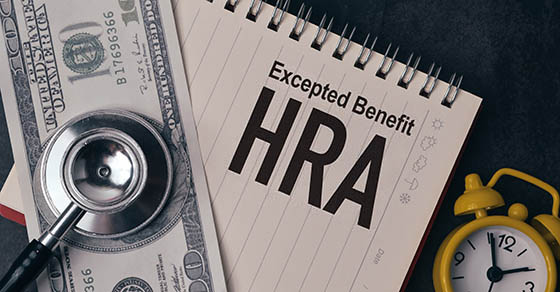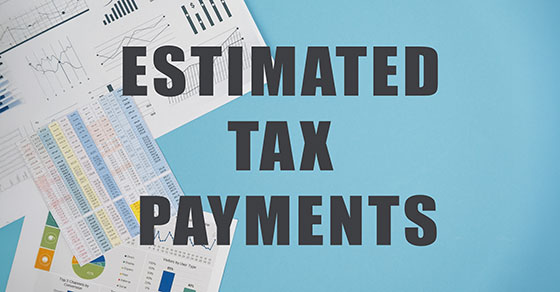EBHRAs: A flexible health benefits choice for businesses
- ByPolk & Associates
- Apr, 24, 2025
- All News & Information
- Comments Off on EBHRAs: A flexible health benefits choice for businesses
Under a Health Reimbursement Arrangement (HRA), your business sets up and wholly funds a plan that reimburses participants for qualified medical expenses of your choosing. But there are several different types of HRAs. For example, an excepted benefit HRA (EBHRA) limits employer contributions so much that participants’ accounts under the plan are considered “excepted benefits.” This means EBHRAs aren’t subject to certain legal mandates. In 2025, employer-sponsors may contribute up to $2,150 to each participant per plan year. You can, however, choose to contribute less. Other rules apply, and EBHRAs are subject to ERISA and parts of HIPAA. Contact us for more information.
How companies can spot dangers by examining concentration
- ByPolk & Associates
- Apr, 24, 2025
- All News & Information
- Comments Off on How companies can spot dangers by examining concentration
In a business context, “concentration” can refer to various aspects of a company’s operations. Examining different types of concentration may help you spot certain dangers. Take customer concentration, for example. This is the percentage of revenue generated from each customer. Many companies precariously rely on only a few customers to generate most of their revenue. There’s also vendor concentration (the number and types of vendors a business uses), geographic concentration (how the physical location of customers or suppliers affects operations), and investment concentration (how funds are allocated to capital improvements). Contact us for assistance in evaluating any or all of these.
What tax documents can you safely shred? And which ones should you keep?
- ByPolk & Associates
- Apr, 24, 2025
- All News & Information
- Comments Off on What tax documents can you safely shred? And which ones should you keep?
Once you file your 2024 tax return, you may want to shred or delete tax records. But if the IRS audits your return, you could have to produce documentation. It’s a good idea to keep the actual returns indefinitely. But what about supporting records such as receipts, canceled checks and 1099 forms? In general, the IRS can only assess tax within three years after the return for the year was filed (or three years after the return was due). For example, if you filed your 2022 return by the April deadline in 2023, the IRS has until April 2026 to assess a tax deficiency against you. If you file late, the IRS generally has three years from the date you filed.
Understanding the “step-up in basis” when inheriting assets
- ByPolk & Associates
- Apr, 24, 2025
- All News & Information
- Comments Off on Understanding the “step-up in basis” when inheriting assets
If you inherit assets, they often come with a valuable tax benefit called the step-up in basis. Basis is what the owner paid for an asset, with some possible adjustments. Capital gains tax is due on the sale price minus the basis. At death, many capital assets (such as stocks, real estate and business interests) are generally stepped up to their fair market value (FMV) as of the date of death. The heir’s basis is the FMV, erasing the tax on any gain accumulated during the deceased person’s life. Let’s say your father bought stock many years ago for $50,000. At his death, it’s worth $220,000. Your inherited basis is $220,000. There’s no capital gains tax if you sell immediately for $220,000.
Turn a summer job into tax savings: Hire your child and reap the rewards
- ByPolk & Associates
- Apr, 24, 2025
- All News & Information
- Comments Off on Turn a summer job into tax savings: Hire your child and reap the rewards
With summer fast approaching, you might be considering hiring young people at your small business. If your children are also looking to earn some extra money, why not put them on the payroll? You may be able to turn your high-taxed income into tax-free or low-taxed income by shifting some business earnings to your child for services performed. To deduct the wages as a business expense, the work done must be legitimate and the child’s salary must be reasonable. You also may be able to achieve Social Security tax savings (if your business isn’t incorporated) and your child may even be able to make retirement plan contributions. Contact us if you have any questions.
Explore SEP and SIMPLE retirement plans for your small business
- ByPolk & Associates
- Apr, 24, 2025
- All News & Information
- Comments Off on Explore SEP and SIMPLE retirement plans for your small business
Suppose you’re thinking about setting up a retirement plan for yourself and your employees. However, you’re worried about the financial commitment and the administrative burden. There are a couple of options available. Consider a SEP or a SIMPLE plan. When you set up a SEP for yourself and your employees, you’ll make deductible contributions to each employee’s SEP-IRA. The maximum amount of deductible contributions you can make to an employee’s SEP-IRA in 2025, and that he or she can exclude from income, is the lesser of 25% of compensation or $70,000. SIMPLE deferrals are allowed for up to $16,500 this year, plus an additional $3,500 in catch-up contributions for employees age 50 or older.
Are you a tax-favored real estate professional?
- ByPolk & Associates
- Apr, 11, 2025
- All News & Information
- Comments Off on Are you a tax-favored real estate professional?
For federal income tax purposes, rental real estate losses are generally considered passive activity losses (PALs), which can only be deducted against passive income from other sources. If you don’t have enough passive income, excess PALs are suspended and carried forward to future years. They can be deducted later when you have enough passive income or sell the property. But there’s an exception for real estate professionals. If you qualify, rental losses can be treated as non-passive, allowing you to deduct them currently, regardless of passive income. This can provide a significant tax break if you’re eligible. You may also be eligible for other exceptions. Contact us for help.
Businesses considering incorporation should beware of the reasonable compensation conundrum
- ByPolk & Associates
- Apr, 11, 2025
- All News & Information
- Comments Off on Businesses considering incorporation should beware of the reasonable compensation conundrum
Are you considering incorporating your business? If so, beware of the reasonable compensation conundrum. As a C corporation, you’ll likely want to pay highly compensated employees more compensation and lower dividend amounts because compensation is tax deductible and dividends aren’t. But the IRS is watching: If the tax agency believes you’re excessively compensating a highly compensated employee, it may challenge your compensation approach. Such challenges can result in compensation being reclassified as dividends, with penalties and interest potentially added. You may contest an IRS determination, but doing so will involve time and legal expenses. Contact us for more information.
An essential tax deadline is coming up — and it’s unrelated to your 2024 return filing
- ByPolk & Associates
- Apr, 11, 2025
- All News & Information
- Comments Off on An essential tax deadline is coming up — and it’s unrelated to your 2024 return filing
April 15 is the deadline for filing your 2024 tax return. But another essential tax deadline is coming up for some taxpayers: April 15 is also the deadline for making the first 2025 quarterly estimated tax payment if you’re required to make one. You may have to make estimated payments if you receive interest, dividends, self-employment income, capital gains or other income and you expect to owe tax of $1,000 or more when your tax return is filed. These are the general rules. The requirements are different for others, including those in the farming and fishing industries. Contact us if you have questions. We can help you stay on top of your tax obligations and avoid underpayment penalties.
Small business alert: Watch out for the 100% penalty
- ByPolk & Associates
- Apr, 11, 2025
- All News & Information
- Comments Off on Small business alert: Watch out for the 100% penalty
Some tax sins are worse than others. An example is not paying over income and employment taxes that have been withheld from employees’ paychecks. In these cases, the IRS can assess the trust fund recovery penalty, also called the 100% penalty, against any responsible person. It’s called the 100% penalty because the entire unpaid tax amount can be assessed personally against a responsible person or several persons. It could be a shareholder, director, officer, partner or employee of a business. To be hit with the penalty, the person must: 1) be responsible for collecting, accounting for, and paying over withheld federal income and payroll taxes, and 2) willfully fail to pay over those taxes.










